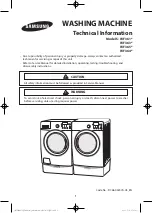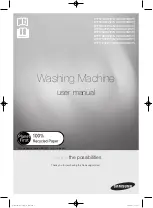
25
Changement d’aiguille
1. Relever le serre à aiguille à sa position la plus haute en
tournant le volant dans le sens anti-horaire.
2. Desserrer la vis du serre aiguille en tournant la vis dans le
sens anti-horaire.
3. Enlever l’aiguille en la tirant vers le bas.
4. Insérer la nouvelle aiguille dans le serre- aiguille, avec le
côté plat à l’arrière.
5. Pousser l’aiguille vers le haut, jusqu’ à la butée.
6. Resserrez la vis de l’aiguille à l’aide du tournevis.
Suggestion utile: En plaçant un morceau de tissu
sous le pied presseur et en abaissant le pied
presseur, vous faciliterez l’opération de remplacement
de l’aiguille, et ceci évitera toute chute de l’aiguille
dans la fente de la plaque-aiguille.
REMARQUE: Resserrez-la bien, mais pas trop.
TABLEAU DES AIGUILLES, FIILS ET TISSUS
Le choix d’une aiguille et du fil correspondant à votre tissu
est très important. Le tableau suivant vous aidera à faire le
choix, avant d’entreprendre votre ouvrage. Utilisez, sauf cas
particulier, Ie même fil pour I’aiguille et la canette.
* Non recommandés pour les tissus extensibles.
* Pour obtenir les meilleurs résultats de couture, utilisez
toujours une aiguille de marque Singer.
D é b r a n c h e z t o u j o u r s . L a m a c h i n e d e
l’alimentation électrique en retirant la fiche de la
prise murale.
TISSUS FIL AIGUILLES
Les tissus ci-dessous peuvent être de n’importe
quelle fibre: coton, lin, soie, laine,
synthétique, rayonne, composite. Ils sont
énumérés en fonction de leur poids.
Polyester-coton
100% polyester
*Mercerisé calibre 40
*Fil fort
Polyester-coton
100% polyester
*Mercerisé calibre 60
Polyester-coton
100% polyester
*Mercerisé calibre 50
Nylon
Polyester-coton
Polyester
Nylon
2020
tige
rouge
2020
tige
rouge
2020
tige
rouge
TYPE CALIBRE
11/80
bague
orange
14/90
bague
bleue
16/100
bague
pourpre
18/110
bague
jaune
LÉGERS
Batiste
Gaze
Crêpe
MOYENS
Velours côtelé
Flanelle
Gabardine
Guigan
Toile de lin
Mousseline
Crêpe de laine
MOYENS-
LOURDS
Tissus apprêtés
Toile forte
Tissu de manteau
Toile de jean
Coutil
Toile à voiles
MAILLES
Mailles apprêtés
Maille double
Jersey
Tricot
2045
tige
jaune
11/80
bague
orange
14/90
bague
bleue
16/100
bague
pourpre
Always disconnect the machine from power
supply by removing the plug from the wall-outlet.
* Do not use on stretch fabrics.
* For best sewing results, always use a Singer Branded Needle.
NEEDLE, THREAD AND FABRIC CHART
Your fabric will determine the choice of a needle and thread.
The following table is a practical guide to needle and thread
selection. Always refer to it before a new sewing project. Be
sure to use the same size and type of thread in the bobbin as
in the top thread supply.
FABRICS THREAD NEEDLES
The fabrics below can be of any
fiber: cotton, linen, silk, wool,
synthetic, rayon, blends. They
are listed as examples of weight.
Light-
Weight
Batiste
Chiffon
Crepe
Medium-
Weight
Corduroy
Flannel
Gabardine
Gingham
Linen
Muslin
Wool Crepe
Medium-
Heavy
Bonded Wovens
Canvas
Coating
Denim
Duck
Sailcloth
Knits
Bonded Knits
Double Knit
Jersey
Tricot
Cotton-wrapped
Polyester
100% Polyester
* Mercerized Size 40
* "Heavy Duty"
Cotton-wrapped
Polyester
100% Polyester
* Mercerized Size 60
Cotton-wrapped
Polyester
100% Polyester
* Mercerized Size 50
Nylon
Cotton-wrapped
Polyester
Polyester
Nylon
2020
red
shank
2020
red
shank
2020
red
shank
2045
yellow
shank
11/80
orange
band
14/90
blue
band
16/100
purple
band
18/110
yellow
band
TYPE SIZE
11/80
orange
band
14/90
blue
band
16/100
purple
band
Changing the needle
1. Raise the needle bar to its highest position by turning the
hand wheel counter clockwise.
2. Loosen the needle clamp screw by turning it counter
clockwise.
3. Remove the needle by pulling it downward.
4. Insert the new needle into the needle clamp with the
flat
side toward the back.
5. Push the needle up as far as it can go.
6. Tighten the needle clamp screw with the screw driver.
Helpful Hint: Placing a scrap of fabric under the
presser foot and lowering the presser foot makes
it easier to change the needle and will preclude
dropping the needle into the needle plate slot.
NOTE: Tighten snugly, but do not over tighten.














































